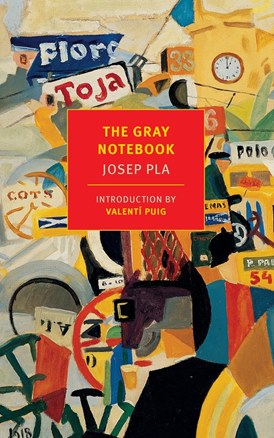Description
Josep Pla’s masterpiece, The Gray Notebook, is one of the most colorful and unusual works in modern literature. In 1918, when Pla was in Barcelona studying law, the Spanish flu broke out, the university shut down, and he went home to his parents in coastal Palafrugell. Aspiring to be a writer, not a lawyer, he resolved to hone his style by keeping a journal. In it he wrote about his family, local characters, visits to cafés; the quips, quarrels, ambitions, and amours of his friends; writers he liked and writers he didn’t; and the long contemplative walks he would take in the countryside under magnificent skies. Returning to Barcelona to complete his studies, Pla kept up his diary, scrutinizing life in the big city with the same unflagging zest and humor.
Pla, one of the great Catalan writers, held on to this youthful journal for close to fifty years, reworking and adding to it, until he finally published The Gray Notebook as both the first volume and the capstone of his collected works. It is a beautiful, entrancing, delightful book—at once a distillation of the spirit of youth and the work of a lifetime.
About the Author
Josep Pla i Casadevall (known as José Pla in Spanish) (March 8, 1897, Palafrugell, Girona - April 23, 1981, Llofriu, Girona) was a Catalan journalist and a popular author. As a journalist he worked in France, Italy, England, Germany and Russia, from where he wrote political and cultural chronicles in Catalan.The most important characteristics of the “planian” style are simplicity, irony, and clarity. His works show a subjective and colloquial view, “anti-literary”, in which he stresses, nevertheless, an enormous stylistic effort by calling things by their names and “coming up with the precise adjective”, one of his most persistent literary obsessions.Pla lived completely dedicated to writing. The extent of his Obres Completes - Complete Works (46 volumes and nearly 40,000 pages), which is a collection of all his journals, reports, articles, essays, biographies and both long and short novels.His liberal-conservative thought, skeptic and uncompromising, filled with irony and common sense, keeps sounding contemporary, completely current, even though it seems to contradict the current cultural establishment same as it did with its completely opposed antecessor. His books remain in print and both Spanish and Catalan critics have unanimously recognized him as one of the greatest writers of the 20th century.
